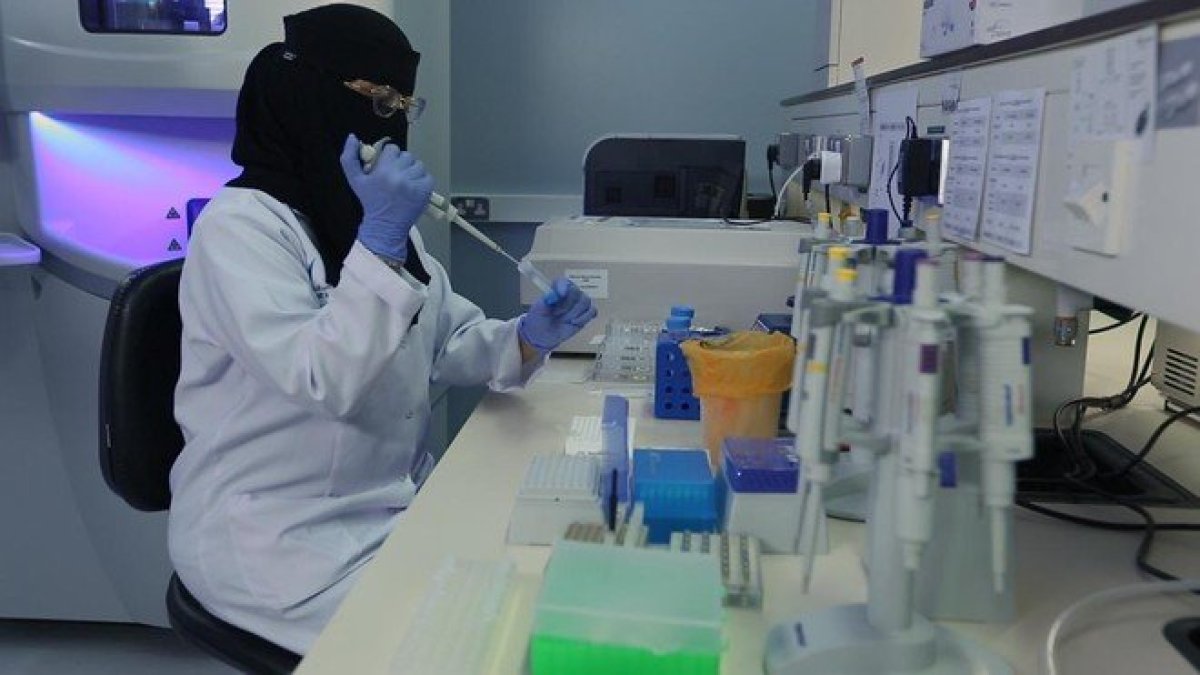Saudi Arabia has been working for 9 years to build a genetic and genetic database for the community by launching the "Saudi Genome Project" to reduce genetic diseases.
The project aims to establish a genetic map of the community by creating a database to employ new molecular and genetic techniques, with the aim of diagnosing diseases and helping to identify their causes and the ability to treat them.
The Saudi Genome Project, run by King Abdulaziz City for Science, is based on enhancing cooperation with laboratories by collecting samples by specialists from all regions of Saudi Arabia, and then identifying their genetic variants that lead to genetic diseases.
It is expected that the Saudi genome program will contribute to monitoring the possibility of the emergence and recurrence of genetic diseases for the individual and the family, and improving the methods of treating them depending on the genetic makeup of the person, and then giving the patient the appropriate medication.
The most common diseases
President of the Saudi Society for Genetic Medicine, Dr. Zuhair bin Abdullah Rahbeni, saw the launch of the project as "a scientific achievement towards addressing the developments of genetic diseases, and determining the genetic basis for them through the use of modern laboratory and computer techniques."
Rahbeni confirmed to Saudi media that "the project will work to support the health development in the Kingdom through the application of new genetic treatments that rely primarily on databases that will only be available through it," noting that it will contribute to expanding premarital examinations to include more diseases that have recently been known. Such as blindness, genetic deafness, and metabolic diseases.
The President of the Saudi Society for Genetic Medicine stressed the role of the Saudi National Human Genome Laboratory in identifying genetic mutations that cause genetic diseases, and providing valuable medical information about the nature of common genetic diseases in Saudi Arabia.
Among the most important of these are "recessive genetic diseases", which mean that the father and mother carry pathological inheritances that do not appear on them, but may be transferred in the event of childbearing to children.
Infections with genetic diseases often occur as a result of mutations in the DNA (Deutsche Welle)
Saudi Arabia had adopted the pre-marital screening program in 2004, before the adoption of the early-birth screening program in 2005, which includes screening for 17 genetic diseases at the present time.
According to the Saudi Genome Project website, it will contribute to diagnosing and preventing genetic diseases, improving treatment methods, and early or prior detection of some chronic diseases, such as: colon and breast cancer, heart diseases and neurological diseases, in addition to personalized medicine.
information system
In addition, the program plays an important role in confronting infectious diseases by studying the genetic factors that cause the variation in symptoms of infection with the emerging coronavirus (Covid-19) among Saudis.
In this regard, King Abdulaziz City for Science and Technology is developing an interactive information system aimed at reducing the spread of common genetic and genetic diseases among Saudis, in partnership with the Ministry of Health and a number of other institutions in the Kingdom.
During the last period, the Saudi Genome Program succeeded in documenting 7,500 variants that cause genetic and genetic diseases in the Kingdom, and 3,000 genetic variants that cause more than 1,230 rare genetic diseases in the Saudi society were documented, through the central laboratory of King Abdulaziz City for Science.
The cost of treating genetic diseases in Saudi Arabia is about $30 billion annually, so it was necessary to search for a radical solution to detect them early and limit their aggravation.
Infections with genetic diseases often occur as a result of mutations in the DNA that lead to the wrong translation of proteins, which results in a defect in the resulting protein, which leads to affecting the function of the protein in the cell, and the occurrence of disease whose severity depends on the importance of the affected protein and its functional role within cell.

